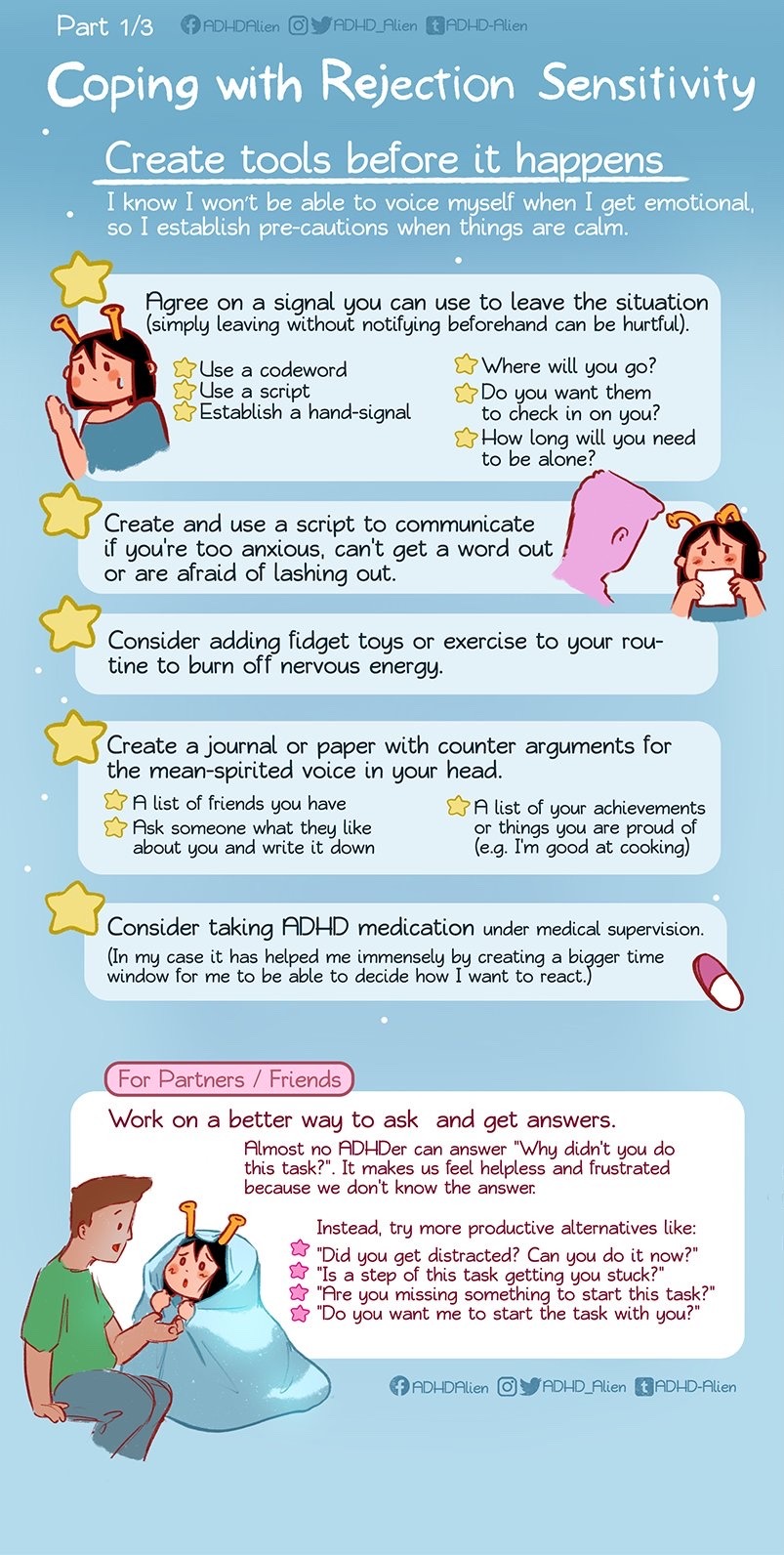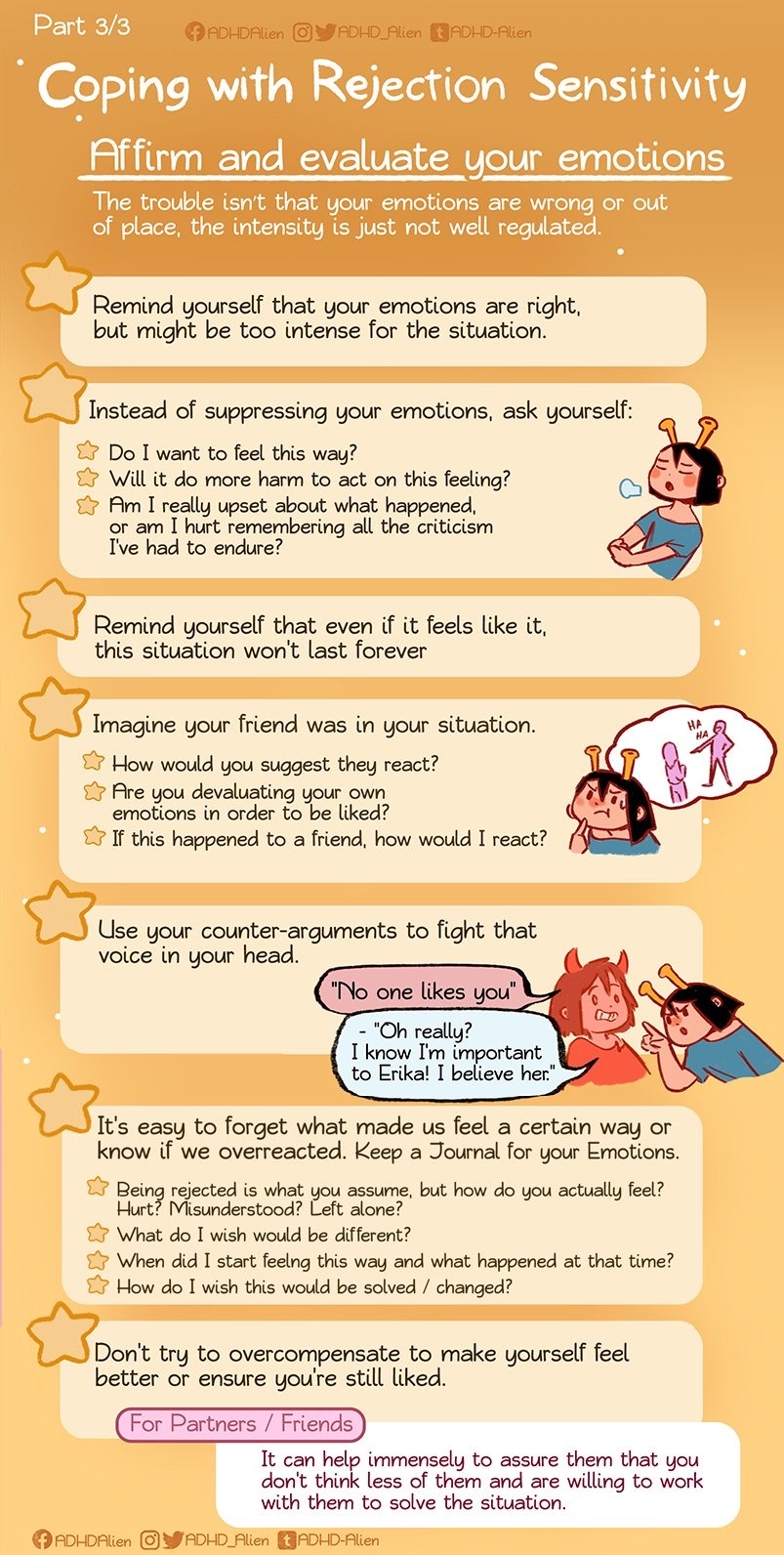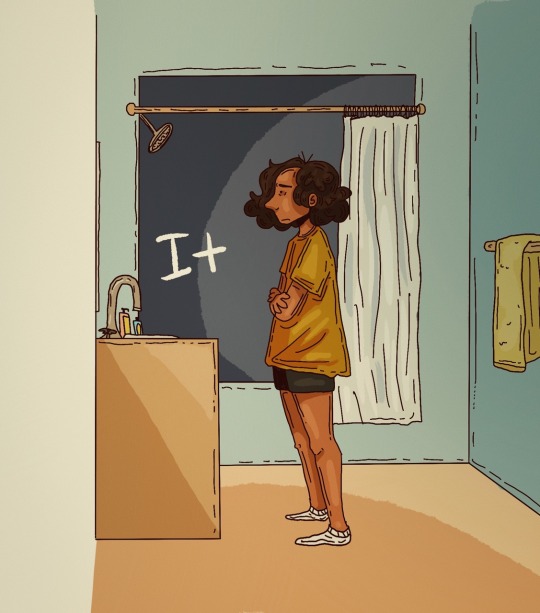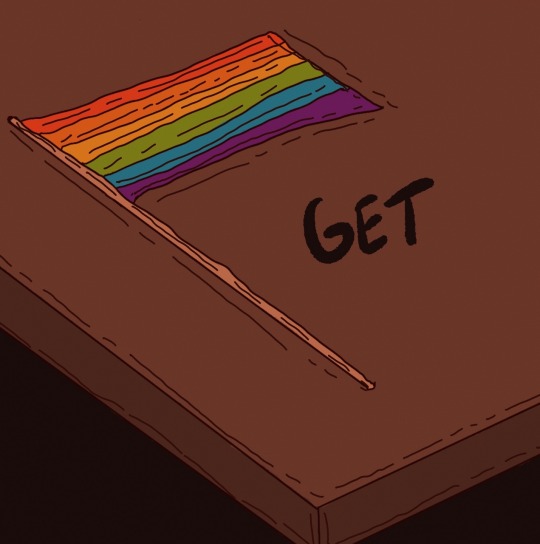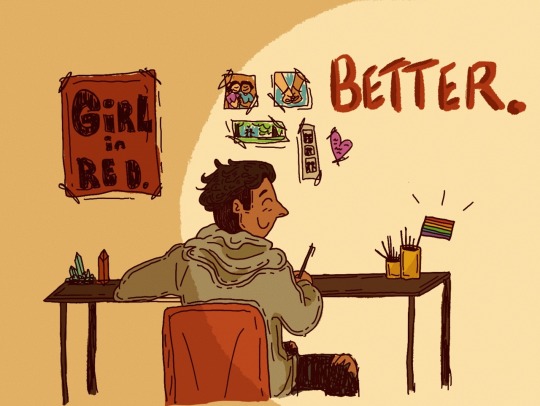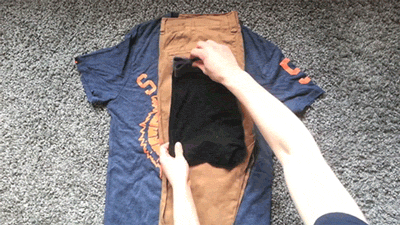/////vent //diagnosed// (c)ptsd survivor///// ♡ asexual biromantic ♡
Don't wanna be here? Send us removal request.
Text
me: goodnight moon :)
moon: should’ve been saying goodnight 5 hours ago its 4am asshole get your life together
399K notes
·
View notes
Text
He never respected nor me nor my mother. He’s always so vulgar and verbally abusive. And he never ever supported me in anything. I was always ‘weird’ and 'disgusting’ and 'too much’. At this point even my teachers are more supportive than him when it comes do my personality, interests or looks. He feels so bad about himself he constantly needs to take me down just to have this illusion of being strong. I just hate him so much. It’s disgusting that we are related.
54 notes
·
View notes
Text
I’m really curious if this is common experience with abusive parents but did you have a lot of instances where they simply never look at your face when you come in? Or look at you at all? Like if you entered the room they couldn’t tell if it was you or your siblings and they would even call you the siblings name? You always knew exactly who was where but they would confuse you with others and not even feel bad, just imply its your fault for not, idk introducing yourself when you come in, and that its wrong for you to be bothered by this.
They by extension would never bother to notice your state, mood, if you’re looking okay, they just didn’t care. I had instances where I straight up cried (silently, against my will) in the same room and they never noticed a thing bc nobody even glanced at my direction. Does this happen a lot? Also I have to note that this is some next level neglect, being unwilling to glance at your child even to recognize them, until its manipulation time.
319 notes
·
View notes
Text
only interact with me if ur problematic & mentally unstable
20K notes
·
View notes
Text
types of healthy coping skills
1. self-soothing
comforting yourself through the 5 senses
Touch: stuffed animals, stress balls, taking a bath, a soft blanket
Hear: music, audio book, guided relaxation
See: snow globe, glitter, calming images, art, anything that pleases you visually
Taste: tea, mints, gum
Smell: lotion, candles, incense
2. distraction
removing your focus from the stressor for a period of time
puzzles, art, crafting, reading, movies, gaming, exercise, being social
3. opposite action
doing the opposite of the impulse that aligns with a positive emotion
affirmations, inspiration, lighthearted and encouraging focus
4. emotional awareness
identifying and constructively expressing what you’re feeling
journaling, listing emotions, using a emotional identification chart, drawing, therapy
5. mindfulness
centering and anchoring yourself to the present moment
meditation, guided relaxation, yoga, breathing exercises, candle gazing, going for a walk
6. ask for help
this is important to do when you feel like your coping skills are not enough or they are too negative and detrimental
therapy is ideal for helping a person create a healthy coping strategy and incorporate it into their life
*a coping skill is considered healthy if it helps you to deal with stress more positively, does not hinder your progress, and isn’t harmful physically or mentally. A coping skill can become negative when it is used to completely avoid dealing with the stressor.
114K notes
·
View notes
Text




suddenly remembered this poem as i was making breakfast this morning & frantically googled “poem remembered to buy eggs?????????” & somehow managed to find it & it utterly knocked the wind out of me just as much as when i first read it
164K notes
·
View notes
Text
reblog if your father is the worst garbage to ever walk this earth
5K notes
·
View notes
Photo

How To Run Away From Home Masterpost
Ordinarily I’d just push y’all to the main blog, but the likelihood of clickthroughs from Tumblr is low, and I think this is really important information for a lot of folks out there in Tumblrland. This post is LONG.
Here’s the most important info from the HTRAFH series I posted on OSG this week. The OSG proper posts are linked throughout the text.
Where are you going? Who can help you? What do you need?
Not only do you need to pack a bug-out bag with some or all of your life necessities, but you need to be emotionally prepared for the fallout.
This is not an easy decision, and it should not be made lightly. Being completely independent and unsupported by your parents is fucking hard, which is why >70% of runaways go back home within a day. People doubt you and belittle you, it’s hard to get systematic support from schools or social workers, and you’ll be in therapy basically forever. It sucks. But it can be worth it.
Leveraging your freedom with the emotional and social consequences of being parent-free makes running away and life after being kicked out really difficult. When you commit to getting out, you have to make a lot of uncomfortable and difficult decisions that center on: which is worse.
Which is worse: living in a homeless shelter or feeling like a hostage of your family?
Which is worse: getting a crappy job or being financially dependent on family members who use money as a form of control?
Which is worse: uncomfortable conversations with police and social services or enduring abuse?
Make a Plan
What should you plan? How do you even get started?
The most important things you’ll need to know how to find are: housing, money, and support.
If you had to get out of the house in two minutes:
Where can you go?
How can you get there?
What would you do the next day? The next month?
How can you get food?
How can you get money?
What else do you need?
How can you keep from getting dragged back “home”?
Who can and will help you stay away?
Come up with a concrete plan that covers those things. If you can, come up with alternate plans in the event things don’t go the way you thought they would. Your friends’ parents may be generous to let you stay for a week, and they might even feed you when you’re there, but you need to think beyond that.
You can’t live off of other people’s generosity forever. Couch-surfing and crashing with someone rent-free must be a temporary part of your plan.
You’ll want to find long-term housing, whether it’s with a shelter, a hostel, or a transitional living program. At some point you will need money���for shelter, food, health, and fun. Find ways to make a living, even if it’s doing something as passive as taking surveys and watching videos on your phone.
Talk to people. See which friends can help you out, and who can point you in the direction of case workers. Call shelters and social services to ask for help. Apply for grants and financial assistance. You never know who is willing to help until you ask them.
If nothing else, know where to find a homeless shelter and food bank.
Pack Your Bug-Out Bag
What’s a Bug-Out Bag?
It’s a bag that’s ready and waiting for you when you need to get out–whether it’s a temporary relocation or a permanent escape. It’s a term used by the preppers but it’s also used among runaways and throwaways as a bag that has the bare essentials for striking out on your own.
Chances are, you can’t fit everything you need in a single bag–and even more likely, you won’t have access to the things you need to put in a bag. But figuring out exactly what you need is the key to planning a bug-out bag and your immediate future.
When I left home, I had an extra pair of pants and my wallet with a few dollars inside. I didn’t have a phone or a debit card or anything. Now I have a hoarded 300-square-foot apartment–living proof that if you keep pushing through, you will eventually have the material objects you need.
But if you can make a bug-out bag, find a safe space (or several safe spaces) and gather the essentials. If you’re in an abusive situation where your possessions and privacy are strictly controlled or monitored, you’ll have to be extra sneaky.
Good places to hide stuff:
between the mattress and box spring
underwear drawer
coat/pants pockets
bottom of a clothes hamper or trash can
an air vent
friends’ houses
sticks of deodorant
old pill bottles
book/binder safe
potted plants
battery compartments of electronics
What do you need in your Bug-Out Bag?
Anything that you might need or want if you had to get out of the house in less than five minutes. Here is a one-page printable checklist for pre-packing your bug-out bag:

edit: As a youth who was kicked out in a time before cell phones were ubiquitous, I neglected to include a phone on this list. However, if your parents pay for your phone, it can be cut off at any time or be used for blackmail against you. If you can spare the $10, get a burner phone at Walmart for emergencies.
Who Can Help?
What kind of things do you need on your Bug-Out Bag info list? Think about what you’ll need once you’re on your own. Money, food, housing, medical care, emotional support…
Keep a list of all of the people and places that can give you that so you know where to go in the middle of the night. These can be:
friends
family members of friends
your own sympathetic family members
social services/child protective services
the police
hotlines
domestic violence centers
shelters
food banks
employment offices
clinics
college financial aid offices
the library, which can put you in touch with all of the above
Seriously, I cannot emphasize the last one enough. Your local public or school library has so many regional-specific resources available for you if you just ask. If nothing else, the library is a good place to stay during the day when you have nowhere else to go.
Resources
Note: These links are mostly US-specific because that’s where I live. A quick Google search for these service keywords and your country or area will go a long way in finding supportive providers.
Crisis Hotlines and Chat Support
Most crisis help lines can help you out when you plan to run away from home by searching for shelters and case workers for you, or just by talking through the reasons you want to run away from home. They’re a great resource to have on hand when you’re feeling lost.
National Domestic Violence Hotline: resources and support for domestic violence crises
Crisis Text Line: text-based support and counseling and links to additional chat- and hotlines
Crisis Call Center: hotline and text line for youth in crisis
Boys Town: counseling and assistance hotline for youth in crisis
Youth America Hotline: hotline and chat line for youth in crisis
Thursday’s Child: directory of hotlines, text lines, and chat support for youth in crisis [inexplicably has autoplay music]
Abuse Reporting and Recovery
Whether you’re trying to become emancipated, press charges against your parents, or you just need help with the emotional fallout when you run away from home, these organizations can help you find the resources that work for your specific situation.
American Bar Association: find legal help whether you’re pressing charges against a parent or you want to know what your rights are when filing for emancipation.
Cornell University Law School: information about the emancipation process
Safe Place Program: counseling and resources for youth in crisis
Child Welfare League of America: resources and information for crisis youth placement
Family and Youth Services Bureau: family violence services
Prevent Child Abuse America: resources for youth in crisis
Specialized Alternatives for Families & Youth of America: resources and information for reconciliation, foster care, and the juvenile justice system
Homelessness
Shelters gain and lose funding all the time, so it always helps to search for what’s still open in your immediate area. These websites and organizations can help with that search, but again: libraries are often safe spaces and the staff there know what’s in your neighborhood better than a stranger on the internet.
Homeless Shelter Directory: a map and listing for local shelters and transitional housing programs
40 to None: find shelters that are explicitly LGBT and youth-focused
Covenant House: shelter and transitional housing services across the US, Canada, and Latin America
National Coalition for the Homeless: resources and shelter listings
HUD Exchange: resources and information for homelessness
Homelessness Resource Center: information, resources, and training materials for homelessness
Family and Youth Services Bureau: youth homelessness programs database
National Center for Homeless Education: local and state services
Uhlich Children’s Advantage Network: counseling and shelter information (Chicago)
National Association for the Education of Homeless Children and Youth: educational assistance and resources for homeless youth
National Center for Homeless Education: educational assistance and resources for homeless youth and adults
National Network for Youth: information and resources for homeless youth
Transitioning to Independence
Many of the homeless shelters and youth programs listed above have transitional housing programs, but here are two good resources for getting help transitioning to independent living when transitional housing programs aren’t available.
Help When You Need It: connects you with local providers for financial, food, and housing assistance
Year Up: transitional living programs that get you employed and housed within a year
Health and Wellness
Many homeless youth struggle with receiving adequate health care on the streets. These two sites help connect you with general and mental health services in your area, but they are by no means exhaustive lists. Search for free or tiered-payment clinics in your area for local providers.
Health Resources and Services Administration: find clinics and health services in your area
Mental Health America: map of available mental health clinics
General Youth Support
Most helplines and providers focus on immediate problems such as homelessness or abuse, but youth who run away from home have any number of other issues to deal with, from dating to drugs to staying in school. These organizations help supplement the day-to-day drama you have to deal with. Many larger cities also have youth centers, so be sure to search for what’s in your area.
Boys and Girls Club: outreach and after-school programs, as well as counselors and case workers who can connect you with local providers
ReachOut: information and advice for common issues facing youth today
YWCA: programs and services for at-risk youth
CenterLink: LGBT-focused community and youth groups
If you have any additional resources to add to this list, please reblog them or send me an Ask and I’ll update the list here and at OSG.
6K notes
·
View notes
Text
places to hide things if you’re stuck with an abuser (adding on is appreciated and encouraged!)
tip: if you can, move your hidden items around semi-frequently
•inside your pillowcase or pillow
•between your sheets and your mattress
•in your mattress
•behind a poster or picture
•inside a book or book cover
•inside clothes you never wear
•sewn into clothing
•inside your shoes
•inside your phone case
•inside your toliet tank
•your school locker if you have one
•buried outside
•inside furniture
•behind something that rarely gets moved (a bookcase, a bed, etc)
•behind panelling or wallpaper
•under a floorboard or carpet
•underneath a litterbox/cage/tank/pet related thing that doesn’t get moved around frequently
725 notes
·
View notes
Note
You talk a lot about how to recognise signs of abuse, but what can I do now? I'm still in an abusive environment, I just now know that I am. What can I do to protect myself from my mom?
Okay that’s is a good question. And before I start I just want to make clear that there is no advice in the world that I could give to you that would make your mom be any kinder. That being said, there are things that you can do in the way of supporting yourself now and getting ready for leaving and such.
Keep reading
62 notes
·
View notes
Text
tips for running away from home, from someone who did that:
don’t tell your abusers what you’re up to; they will put their energy into sabotaging you, for example, I was fairly clear about intending to move out, and my parents took great effort to convince me that it’s absolutely impossible for me to survive on my own, tried to take away my money by any means necessary, even getting me to sign a contract with a bank so i wouldn’t be able to access my money in there (luckily i didn’t put any of my money there to that scheme failed), and in the end they tried to convince me that any money i made freelancing will be stolen before i ever see it, and tried to prove that the money doesn’t even exist. it didn’t stop me but sure made me a lot more miserable than i should have been
don’t let your abusers know where you are, they will try to get to you; i ran away after an extreme violent outburst my parents threw at me, there was death threats, injuries, broken mobile phone i tried to use to film the violence, door taken away from my room, it was enough for anyone to get the hell away from a place, and when my mother found out my first hiding location she came to tell me that i have to think about why all of that was my fault. again, making me a lot more miserable than i should have been.
first few days (weeks) you’ll be in state of a shock, especially if you’ve been unsure if you’ll be able to get away; i couldn’t determine if i could function at all after escaping, my head was spinning, i had breakdowns every other day convinced that i’m about to die, it was due to the heavy brainwashing that made me believe that i was dead if i were to run away, there was no way to escape the fear and the torture of it, I hope not everyone is brainwashed this way but I do see a lot of people doubting if they have what it takes to go thru life without parents, and the answer is yes you do, you got it all.
your abusers will react in the way that will hurt you most; i know of some parents who aimed to injure their run away kid by pretending they could live just fine without them, like the child was a nuisance to their life and they were better without it, and in that case it was the most hurtful and cruel thing they could have done, since the child slaved their life away for the sake of acknowledgment and attention from parents. In my situation however, my parents kept acting their entire life like i was a huge burden and worthless waste of space, and it made me feel like if I were to run away they would let me be and pretend I never existed, and I would be free. However I was wrong. They contacted my friends, parents of my friends, entire outer family circle and anyone they knew to be in contact with me to make me feel guilty for leaving and tell me i was wrong and should come back, they found the person who sheltered me and convinced even them to tell me to return (this was the person who saw me after the violent attack, while i was shaking and out of my mind with fear, they saw me hide under the bed constantly convinced i was about to be killed, and this person was still convinced by my parents that i should go. back. to that.), they made their friends add me on facebook and request information about my whereabouts until i had a panic attack and deleted facebook, they kept on finding means to contact me and storm me with guilt and shame even after i cut every means of contact i knew, they still sometimes barge into the house of my friend demanding to get in contact with me, demanding that letters, food, even money be given to me that they leave there (it took me a while to figure out they would never ever give me money for the sake of my survival, but would absolutely use money to control and sabotage me) - all you can do is in any case, to be ready for the worst. Be ready for whatever you fear the most they would do - because they will do that. Make plans of resistance, plans of keeping yourself safe thru it, plans of retreat and safety if what they do makes you suicidal.
when you’re free, the trauma symptoms will go berserk at first; your entire system is experiencing protection from abuse for the first time (protection is abusers not knowing where you are or how to get to you), and this means you’ll finally be free to actually feel all the fear, panic, pain, anger, exhaustion, torture and everything else your body has been holding in all this time for the sake of surviving with abusers around. After I settled in my hiding place, I could barely get up for 8 months, panic attacks were almost daily, i couldn’t sleep from how strongly i felt i was about to be killed and punished for escaping, flashbacks and nightmares wouldn’t stop, chronic exhaustion and chronic pain were so bad I could barely move, it was draining my life energy just to make food for myself, and i could often not leave the place and go outside at all, and would get anxiety attacks around any kind of people. Only tip I have is to not feel guilty for resting. Don’t feel guilty for taking your time to recover, you need it, what is happening to you at this moment is recovery from a war, that lasted all of your life. You are wounded and tortured and you need rehabilitation and as much rest as you can get. I know it doesn’t feel good to just lie about and not get anything done, I know the guilt of not being productive, but lying down for almost a year made me feel shameless about resting and taking my time. It also helped me realize that causes of my chronic pain and chronic exhaustion were all the things i was forced to do against my will, basically anything abusers forced me to do, anything school related, and anything i was doing for well being of others and not myself. Resting allowed my natural will to do things to awaken, even though it took long, I now don’t have to force myself to move anymore, i can get up without thinking about it, doing things i want to do makes me more energetic rather than exhausted. So, no more doing things against your will, for anyone.
you will slowly find out just how much your abusers lied to you about the world. and trust me they lied to you a whole fucking lot. you will find out all the threats they made were empty, all their opinions and insults sent at you baseless and imaginary, all the doubts they planted into your mind, will start sounding ridiculous and stupid. A lot of abusers try to make their children incapable of making their own choices and fighting their battles and gathering knowledge about the world, so they would always feel like they can’t do anything on their own, and would turn to their parents for guidance, however, abusive parents while making choices and guidances for you, only thought about themselves and whatever is convenient for them, and not for you, which by default, makes you the person capable of making better choices, because for the first time, choices would be made for you, by you. Control over your life will feel good once you realize it’s not hard or scary, but gives you the power to do what you please, without having to respond to anyone.
there will always be people who will try to make you doubt your decision and blame you and take your abuser’s side, those people are wrong, and they are your enemies. From this point on, anyone who tries to make you doubt your decision to save your life is an enemy. Nobody should ever try to make you doubt if you could have done anything else but pick yourself up and save yourself from abusive environment. You can absolutely decide that those people are scum who would have you dead for their convenience, and turn your back on them.
I don’t have any financial advice, because i only ran away after earning enough money to not end up homeless, and I just did it by freelancing over the internet, which is something my abusers didn’t expect me to be capable of, so they failed to sabotage me on time, they however did make sure to throw abuse my way every time i was doing good and achieving something, but i stubbornly kept working until it got me out.
Conclusion: running away is fucking hard, you lose your family, in some cases all of your relatives as well, you lose your heritage more often than not, your use your security and backup in life, your life just ceases to be what it was and turns into something completely new. You gain: yourself, your freedom, your life, your sanity, your health, your personhood, a chance to heal and recover, a chance to experience life as it should have been. Absolutely. Worth It.
27K notes
·
View notes
Video
youtube
This might be helpful for some of you, if you have to escape an abusive home and/or are kicked out from an abusive home. How to survive as a homeless teen. Related post:
Leaving an abusive home
246 notes
·
View notes
Text
Moving Out From an Abusive Parent: A Crash Course For Minors
**The legal information provided in this only applies to minors living in the United States. I am not a legal professional, and any legal information should be researched independently by the reader.**
**Each state has their own laws about when a minor can move out of their parent’s. Research these laws. I’m not promoting minors breaking the law.**
Money
Moving out is a lot more expensive then it seems. Even if you have a place to stay (a friend, shelter, relative), there will be bumps in the road that will take a good chunk of your savings. Luckily, I had managed to save a few hundred dollars before I myself moved out
Try to get a job to save money before leaving
Try and plan this about 6-12 months before leaving, so if you change jobs they will be able to give you a good recommendation
If you can’t get a job, you can make money online.
Sadly, I have no real marketable skills, but if you’re good at drawing, writing, editing, translating, programming, tutoring, or web design, this might be the gig for you.
Websites like Fiverr or Chegg are good websites to make money online.
If you want to keep your job secret, you can make a PayPal account. They can be set up with a Visa gift card if you don’t have a bank account.
Avoid putting any of your money in your parent’s name. Your parents may drain any joint accounts or limit your access to them.
Note- Online jobs do not withhold income tax, so reserve some to pay income tax, as even work online must be taxed. However, PayPal only reports accounts that receive either $20,000 or 200 or more payments a year to the IRS (Hint hint, wink wink).
Legally, your parents are allowed to take your check from your work. However, they cannot cash it without you signing it over to them. The only way they can do this is by illegally forging your signature. To prevent your parents from taking your check, you may want to change where you work. If you want to avoid needing a work permit, try starting a job over the summer, as they are usually not required.
I highly suggest buying a Visa gift card if you don’t have a bank account (or have lost access to it). I use the Visa Vanilla gift card. It can hold up to $500 dollars, can be used to direct deposit work checks, and can make electronic payments like a debit card. I used mine to order my birth certificate and send AP scores to my college.
Documents
The worst mistake I made when I moved out was not getting my birth certificate or social security card before leaving.
Try and get a hold of your birth certificate and social security card before leaving. It will make life 100% easier. However, like in my situation, this isn’t always possible.
Birth certificates can be ordered online, in person, or by mail. Your state’s Department of Health and Human Services website will have information on this. They usually cost about $50-$60 to order.
Social Security cards can’t be ordered until you’re 18. However, you should at least know your social security number. If you work, it will be on your W2s. Your school will also have your social security number on file.
Get a State ID as soon as possible. These require your birth certificate and social security card (or W2 if you’ve filed taxes), so it’s best to try and get one before leaving.
If you’re still in school, talk to your counselor about your situation as soon as you move out. Unless you tell them abuse is occurring, they will not contact CPS. Research your state’s laws on runaway minors beforehand, as your counselor may lie and tell you that you have to go home (like mine did, even though minors that are 17 do not have to return home in Michigan).
Counselors are required to provide homeless students with resources under the McKinney-Vento law. You counselor will ask about your living arrangement and file a McKinney-Vento form. Ask for copies of this form, and try to get it as soon as possible. You do not have to answer all of the counselor’s questions (I told my counselor I was staying at a friend’s, but did not provide an address or phone number. My counselor also refrained from including my mother’s phone number or address per my request, as I was concerned about the district contacting her).
After filing this form, your counselor will connect you with a McKinney-Vento School District Liaison. It’s this person’s job to help homeless students find shelter, get transportation to and from school, and give you resources for food, clothes, and health care. If you have any health issues, this is vital.
Living Arrangements
Since I’ve moved out, I’ve been couch surfing from place to place. Luckily, I’d already planned on it being this way, and have family and friends glad to help me
Try and have a plan of where you’re going even before you start getting ready to leave
Personally I’d avoid shelters, as youth shelters (at least in my area) are usually focused on repairing the relationship between parent and child. Also, you can only stay for a limited amount of time before your parents can force the shelter to return you to their custody
Emancipation is an option, however it is tedious and extremely difficult to accomplish when living in an abusive household
Research the laws about harboring a minor in your state. If you plan on staying with family and friends, your parents might call the police on them for harboring a minor (you). Luckily, laws against harboring a minor only include minors under 17 in Michigan.
College
Being homeless can be a royal pain when it comes to going to college. Trust me, I’m doing it right now. However, most students aren’t aware how far they can go without their parents’ help.
As most high schoolers know, the FAFSA is horrible. it becomes even more difficult when you’re homeless.
Do not file as a dependent on the FAFSA. This means you’ll be dependent on your parent(s) to provide their tax information, and gives them the perfect opportunity to hold it over your head.
Minors that are considered runaways or homeless can file as an independent on the FAFSA. This means that the FAFSA only uses your own tax information, not your parents’. When filling out the FAFSA, select “unaccompanied homeless youth” in the dependency section.
Most colleges want verification that students are homeless. Remember that McKinney-Vento form? That form provides verification to colleges that you’re no longer living at home. Try to get this document before filing, to avoid any hiccups.
Many colleges provide aid for homeless students. Most programs for foster youth apply to homeless students as well. Call your financial aid office to find out what services they offer.
Welfare
Once you’re 18, you can apply for welfare of your own as long as you’re not living with your parents. However, your parents may still be claiming you, which can prevent you from receiving welfare.
Welfare recipients must declare any household changes (including you moving out) to their social worker. In Michigan, this must be reported within 10 days.
Not reporting household changes is considered welfare fraud and can lead to suspension of welfare or prosecution.
Recipients must report their household size and earnings several times a year.
If you are working, your parent(s) must provide a copy of your most recent pay stubs and a bank statement. Do not provide them with any pay stubs or documentation of your income.
If you believe your parent(s) are still claiming welfare for you, you can report this on your state’s Department of Health and Human Services website. As long as you are being claimed by someone else, you can not apply for welfare of your own.
Filing your taxes as an independent can also prevent your parents from claiming you for welfare (and makes things easier for you).
If your parent(s) receive child support, you may want to tell the parent paying that you are no longer living at home. They can go to court to end payments.
Communication
Successfully becoming independent from an abusive parent is difficult, even more so when you’re scraping for every penny. However, independent means being responsible for your own communication (between work, school, and whatever else you’re doing, you’l need it).
Do not rely on your parents to pay your phone bill. Even if they offer. Even if you are paying them for it. Get it turned off (my mother turned mine off as soon as she realized I’d blocked her, as she’d only kept it on as a way to force contact with me). You will regret it, trust me.
If your phone gets turned off, you might be tempted to buy a cheap minute phone. Don’t, it’s a waste of money, and you’ll hate having to use those annoying little buttons
Internet will take you a long way. I generally use Facebook messenger to talk to friends and relatives. However, apps like Textfree will allow you to get a free phone number. It comes with 60 free minutes of calling and unlimited texts. Minutes can be bought or earned for free by watching videos.
If you have a smartphone, try a piggyback carrier. Piggyback carriers are phone carriers that use the cell towers of more popular cell phone companies for a much lower price. Ting and Republic wireless seem to have the best reviews
If you don’t have a phone, see if your friends or relatives have a spare.
To use a different carrier than the one your phone was bought from, you will need to get it unlocked. Look at the website of the phone carrier your phone was bought from to find out how to unlock it. Do not pay to get your phone unlocked. Most websites claiming to do this are scams.
Make sure to check that your phone is compatible with the carrier before switching.
To change carriers, you will need to buy a new sim card (It must be the Sim card specified by the carrier, do not just buy one). They can usually be bought online and are very affordable (Ting’s sim cards are $1.99).
Piggyback carriers will provide information on how to change your carrier on their website. Please do extensive research to ensure you’re not being scammed.
Transportation
Take advantage of your area’s bus system. Taking the bus for the first time can be scary. It’s complicated, especially when you have to take multiple buses and end up at some bus stop you’ve never been before. However, it’s often the cheapest option.
Find out about bus passes. Since I only use the bus a few times a month, I just pay as I go. However, if you find yourself taking the bus multiple times a week, you might want to consider this.
If you are in contact with a McKinney-Vento School District Liaison, you may be able to get a free bus pass.
Do not rely on others for transportation. At the end of the day, most people are unreliable. Make sure you have a back up plan to get yourself around without others’ help
Doing the Dirty- the Move
DO NOT TELL YOUR PARENT(S)!! Even if they have told you to move out. Even if you have seemed fine with the idea in the past. Once it happens, they will try to stop you.
Try to move out when they’re not home. This will prevent conflict and keep you safe.
Do not let them be able to find you. Only let people you trust know your whereabouts. Make sure you are not being followed. Avoid sharing the names of the people you are staying with and their location. School counselors can be flaky. Do not trust them with your location.
Do not be intimidated by threats to call the police, go to court, or call CPS.
Contacting the police is likely the first thing your parent(s) will do. However, if several days have gone by without police interference, they have likely told your parent(s) that they will not take action (my mother called the police when I left, but they would not do anything since I was 17).
If the police will not do anything, it’s unlikely that a judge will tell you to go home. However, it’s likely this is an empty threat, as testifying in court would lead to their abusive behavior being uncovered. This applies with CPS as well, especially if other children are involved.
Do not assume you will be able to get anything at a later date. My mother still refuses to give me anything I left at her house. Take the important and sentimental things, not objects that can be easily replaced.
If you have to go to your parents’ for some reason, do not go alone. Bring at least one friend and have them sit on the porch. Call them on your phone and mute the speaker so they can contact the police if needed.
Mental Health and Self Care
Moving out can take a toll on you, emotionally and physically. I know it did for me, at least.
Expect to crash. Living in an abusive household puts you into survival mode. Once you begin to feel safe and come down from the abusive environment, you’ll probably become emotionally drained.
No, your memories aren’t fake. After leaving my abusive mother, I found myself constantly questioning my recollections about the abuse which caused me to leave. This is just part of the process of realizing the severity of the abuse.
Don’t expect to adapt right away. Most abused kids are experienced with adapting to difficult situations. However, you shouldn’t expect for that to happen once you leave. Going from a high tension, abusive environment to a safer one is not an easy transition. Talk about culture shock, man.
Anxiety/Depression/CPTSD/PTSD/Dissociation etc. symptoms may (ok, WILL) worsen. Like a soldier coming back from war, many symptoms will resurface or intensify once you are out of the dangerous situation.
Force yourself to function
Make sure you eat at least three meals a day. Even if they are at irregular times and spaced far apart, you need to keep eating. I found this extremely difficult, as my mother starving me mixed with stress had destroyed my appetite.
Buy food that lasts. Staple foods are cheap and easy to make. When living with my mom, I was able to fill myself up with fried rice (with egg), vegetables, and tortillas, all easy to make and nutritious enough to eat for several days at a time
Stay hydrated. If you can’t make yourself drink water, juice, pop, or coffee is fine.
Shower. If you’re not bathing, you will smell like crap. And probably look like it too. A clean face and good smelling hair will do wonders.
Interact with others. Don’t cut yourself off from your family and friends. You need a support network. However, don’t listen to anyone trying to get you to talk you into going back. You left for a reason. Don’t forget that reason.
Avoid destructive coping mechanisms
Recreational drugs, cigarettes, and alcohol will make you feel better in the short term, but we’re playing the long game here (I’m not being patronizing, I have experience)
Chain smoking cigarettes can make you nauseous and sick. If you go to the doctors or dentist, they will be able to tell and may alert your parents. If you need to cover this up, quitting cold turkey for a few days and brushing your teeth thoroughly (for about five minutes, three times a day) may cover it up (if it’s a recent habit, not an ongoing one, as nicotine causes your gums to recede).
Smoking weed isn’t the end of the world. However, don’t get into the habit of it.
Smoking can intensify PTSD/CPTSD symptoms. For example, I’ve noticed I dissociate a lot worse after smoking or a few days after while THC is still in my system.
Be careful. If you get involved in drug related crime (possession, being in a car with people smoking, etc.) you might end up being forced to return to your parent(s) if you are put on probation- juvenile court wants minors in stable households, and despite your claims of abuse (which may be discredited), they may think the best place for you is with them.
If you’re going to do drugs, smoke weed. Acid can cause permanent brain damage, and other drugs can be lethal. No one’s ever overdosed on weed. However, it can be just as addicting as any other drug, so be careful.
If you’re going to drink, be safe. Common sense is key. However, try and limit drinking to social events only. Don’t get into the habit of drinking daily or alone, as this can lead to alcoholism.
Self harm is horrible. Don’t do it, it’s painful and leave scars and is incredibly difficult to quit. Once you start, you’ll never be the same, and cravings may come and go but can last for years after quitting.
Keep Your Nose Clean
Stay on track in school. Failing grades, skipping classes, or suspensions may cause you to be placed back into your home. While I hate to say it, getting into trouble will reduce your credibility to CPS, court, and police.
Keep your head down. The best way to stay out of your parent’s is to not stand out. Avoid as much interaction with the police, your school’s disciplinary office, or court as possible. Having your name pop up multiple times may raise red flags.
Consider Contacting CPS
If you have younger siblings, you may want to consider calling CPS once you are moved out
CPS often takes what kids say at face value. My mother always trained us what to say, However, I am now able to make any claim against her without fear of punishment
Look for proof
You may find proof to back you up in text messages, pictures, or confirmation from others. I found several conversations between my mother and I that would back up my claims.
Expect the worst
If you’ve even had CPS called on you before, you might already know, but CPS workers are usually useless. They will believe whatever a child says (regardless of if it’s a lie), as long as it agrees with whatever the parent is saying and won’t dig any deeper.
If you want action to be taken, you will need a lot of proof, witnesses, and people wiling to back you up.
Breathe
Moving out of an abusive parent’s home can be stressful, disorientating, and terrifying. However, you never realize how bad a situation is until you escape it. If you’re reading this, I hope that this helps at least a little with whatever you’re going through. If you have any questions, want advice or just to vent, feel free to contact me. The system is built against victims of abuse, and having support can really help out.
5K notes
·
View notes
